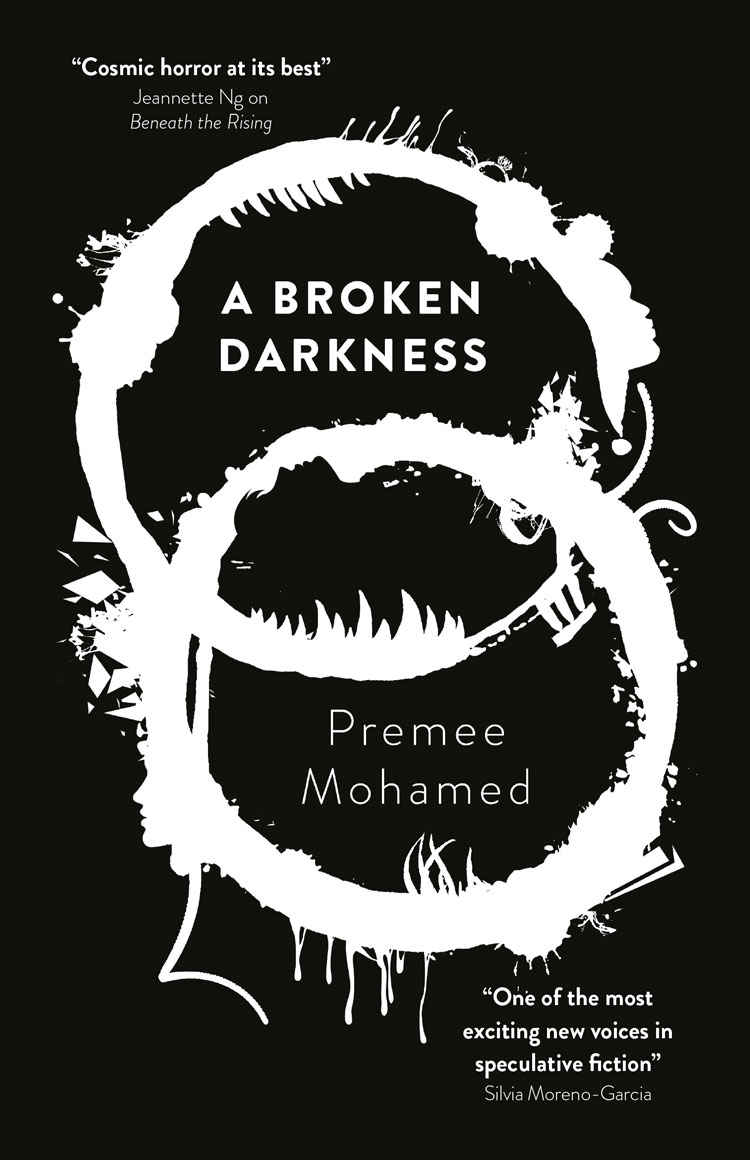Do you find yourself shouting “OH COME ON” at fictional characters? If so, please know that you are not alone: I too am perenially that guy complaining that no one in a zombie movie ever seems to have seen a zombie movie, and no one in a vampire book has ever read Dracula. (This leads into my theory about how entertainment media is in a similar, but detectably different, world from ours… which might be a blog post for another day.)
In my upcoming novel, A Broken Darkness, everyone is dealing with the aftermath of the book that came before it, Beneath The Rising. Nick is treading water while learning how to deal with his new job, new relationships, and new responsibilities. Johnny, apparently above such things as ‘learning from mistakes’ or ‘exhibiting good judgement,’ is about to flip the switch on her new clean-energy reactor and become a global hero. But neither of them is prepared for what happens next, no matter how well they think they are. Too bad they couldn’t read the first book, I found myself thinking sympathetically as I finished the second.
Then I thought: Hmm, what else on my shelves might have been helpful for Nick or Johnny to read before they got entangled in this mess?
1) The Action Hero’s Handbook (David and Joe Borgenicht).
Nick would like to pretend he’s an action hero in this book, but is he really equipped to play one? This little book contains practical lessons on resolving inconvenient situations such as ‘How to interrogate a suspect,’ ‘How to win a fight when you’re outnumbered,’ and ‘How to escape from handcuffs.’ (Unfortunately, this particular section doesn’t seem to have any guidance on what to do if the handcuffs are alive.)
2) The Encyclopedia of Plague and Pestilence (George Childs Kohn, ed.).
To paraphrase Tolstoy, every plague is alike, but every plague response is godawful in its own way. One thing the entire world realised at the end of Beneath The Rising is that no one, not one government, not one monitoring agency, not one scientist, had any idea what was coming or how to deal with it. In A Broken Darkness, it might have helped folks to equip themselves with the knowledge that humans have always reacted to disasters the same way, more or less. Victim-blaming; quack remedies; price gouging; the flight or bunkering of the rich; panic; cults; appeals to higher powers; and human sacrifice. (Wait, has that last one fallen a bit out of fashion?)
3) The Ancient Gods (E.O. James).
In the world of Beneath The Rising and A Broken Darkness, there’s a lot of uneasiness about referring to the Ancient Ones as ‘gods,’ per se. But, as I keep pointing out, no one says gods have to be nice. This book contains unvarnished descriptions of ultra-powerful, immeasurably old, all-knowing beings… who are also vengeful, impulsive, possessive, and temperamental. What’s the difference between doing what you’re told because you love your deity, versus because you fear what they’ll do if you don’t? As certain gods would say: “Oh, we don’t care. Just do it.”

4) The Campaigns of Alexander (Arrian, translated by Aubrey de Sélincourt).
To start a war as retaliation for a personal insult seems like a bit of an overreaction; but, well, history is full of people who lived to start wars for worse reasons. Alexander the Great, supposedly a military prodigy in the same way that Johnny is a scientific prodigy (though not, we hope, via the same method), often seemed impossible to outfight and out-maneuver. So as preparation, it might have been helpful for Nick and Johnny to recognise successful campaign tactics and troop movements, maybe even distil his wisdom, if such a thing is possible, into counterstrategies before (cough) needing them.
5) Secret Societies (Nick Harding).
Boy, it’s hard to get accurate information on secret societies, isn’t it? That whole ‘keeping it secret’ thing is so inconvenient, and everyone in it is so shifty when you ask them direct questions. Nick, now working for one, would be well-advised to educate himself on some of the common characteristics and pitfalls of secret societies… particularly why so many choose to stay secret instead of becoming a public entity, like a community league or something. And when (he should be asking) does a secret society tip over into a cult?
Honorary mention:
A Secret Guide to Fighting Elder Gods (Jennifer Brozek, ed.).
In the interests of full disclosure, I have a short story in this (‘Us And Ours’). I’d like to think it would be useful for Nick and Johnny to have read before Beneath The Rising and A Broken Darkness started! I mean, in school we’re always telling kids to learn from a variety of sources, and you can’t do much better than a whole anthology centred around different methods of doing battle with extradimensional beings!
A Broken Darkness by Premee Mohamed is out on 1 April. Pre-order here.
